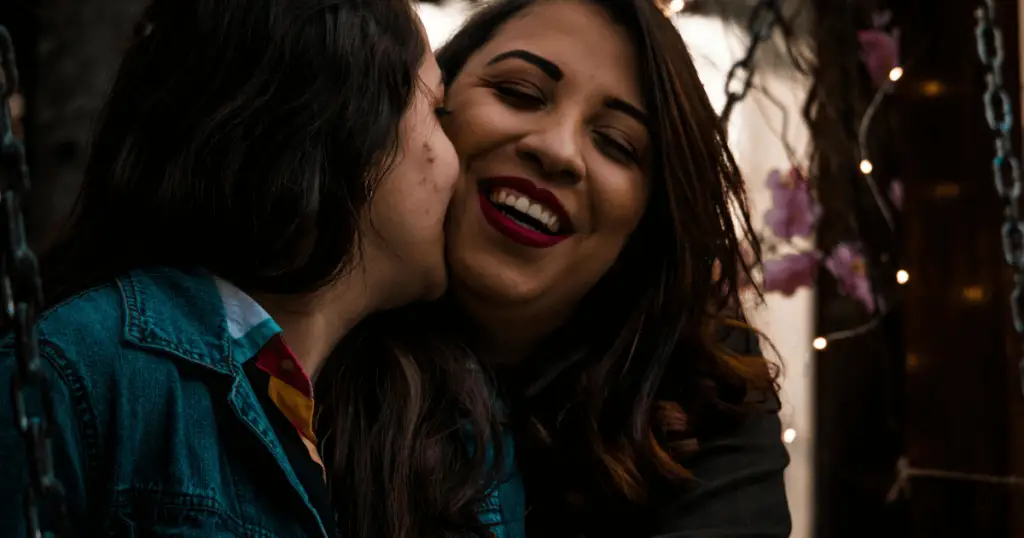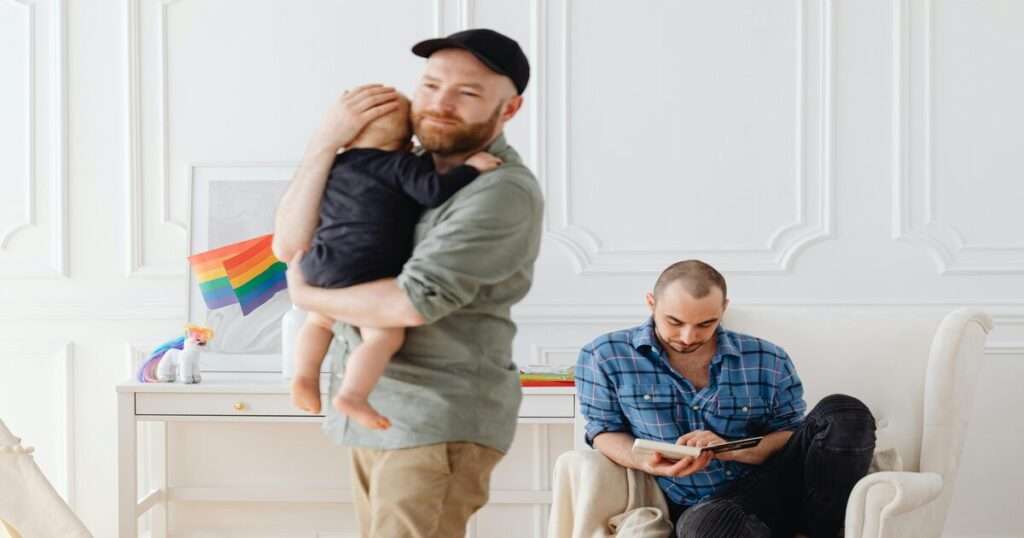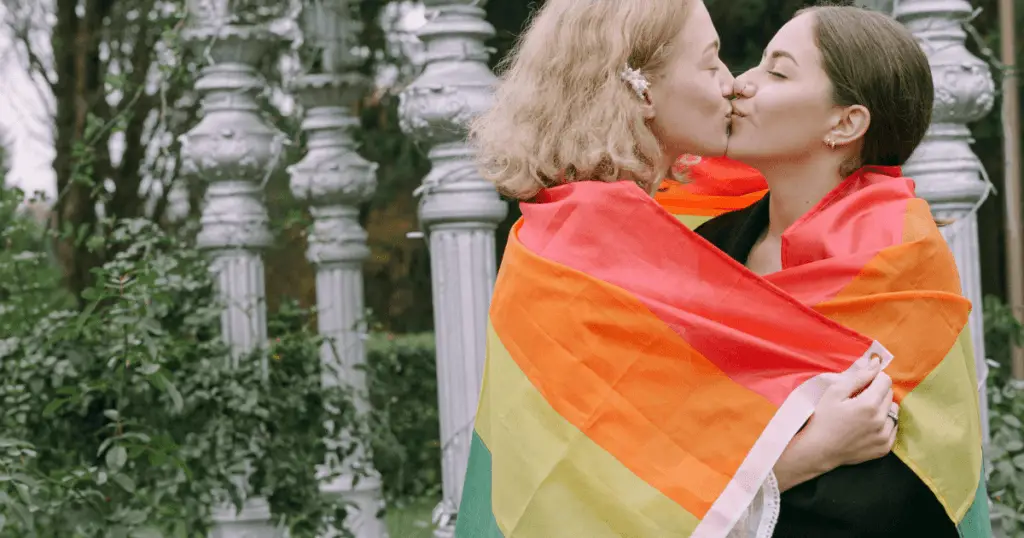As a gay couple, there are many unique challenges we face in our relationships. Despite the progress we are making towards equality and acceptance, being in a same-sex relationship can still present obstacles that heterosexual couples do not have to deal with. We will discuss some of the common challenges that LGBTQIA+ couples may encounter. We will explore strategies and tips on how to make things work and strengthen our relationships.

The Challenges of Being a Gay Couple
1. Social Stigma and Discrimination
We can agree that where we were decades ago is not where we are today. However, it does not mean that the LGBTQIA+ community has achieved full acceptance and equality in all societies and cultures worldwide. Social stigma and discrimination are still prevalent, especially towards same-sex relationships.
As a gay couple, you may face disapproval and rejection from family members, friends, co-workers, or even strangers. This can take a toll on your mental health and put a strain on your relationship. It is essential to remember that it is not your fault but a reflection of societal prejudices and ignorance.
How to handle this challenge:
- Surround yourself with supportive and accepting individuals who love you for who you are.
- Educate those around you about the LGBTQIA+ community, their struggles, and how they can be allies.
- Seek therapy or support groups to help you cope with the discrimination and build resilience.
- Remember that your love is valid and deserves to be celebrated, no matter what others may say.
2. Legal Challenges
Despite the legalization of same-sex marriage in many countries, some nations still do not recognize same-sex relationships and marriages. An example is African countries like Nigeria and Somalia, where same-sex relationships are not only illegal but also punishable by imprisonment or even death. Arab and Middle Eastern countries also have strict laws against homosexuality. This can make it challenging for LGBTQIA+ couples to live openly and freely.
How to handle this challenge:
- Educate yourselves about the laws and regulations of the country you are residing in or plan to visit.
- Consider seeking legal advice from a lawyer who specializes in LGBTQIA+ rights.
- Have an emergency plan in case you face discrimination or legal challenges while traveling abroad.
- Seek asylum or emigrate to a more LGBTQIA+-friendly country if necessary.
3. Parenting Challenges
Starting a family is a dream for many couples, but as a gay couple, you may face additional challenges when it comes to parenting. Adoption laws and regulations vary from country to country, and some may not allow same-sex couples to adopt children. Biological parenthood through surrogacy or IVF can also be complicated and expensive.
What to do:
- Research the adoption laws and regulations in your country or state.
- Consider alternative options such as fostering, co-parenting, or surrogacy.
- Connect with other gay couples who have successfully navigated parenting challenges for support and guidance.
- Be prepared for potential discrimination and rejection from society as a same-sex parent, but remember that you have every right to create a loving family.
4. Internalized Homophobia
Growing up in a heteronormative society, LGBTQIA+ individuals may internalize negative beliefs and stereotypes about their sexual orientation or gender identity. This can lead to self-doubt, shame, and feelings of unworthiness, which can affect our relationships with ourselves and our partners. You may also face pressure to conform to societal expectations and hide your true self, even from your partner.
How to handle this challenge:
- Seek therapy or counseling to work through any internalized homophobia and build self-acceptance.
- Communicate openly and honestly with your partner about your struggles and support each other’s journey towards self-love.
- Remember that there is no one “right” way to be LGBTQIA+, and your identity is valid.
5. Lack of Representation in Media
Representation sometimes matters, and unfortunately, the media still lacks adequate representation of LGBTQIA+ individuals and relationships. This can make it challenging for gay couples to find relatable role models or resources that reflect their experiences. You may also face stereotypes and misrepresentations in the media, which can be hurtful and damaging.
What to do:
- Share your stories and experiences to help create more diverse and inclusive representation in the media.
- Remember that no one person or relationship is representative of the entire LGBTQIA+ community, and it’s okay if you don’t see yourself in mainstream media.
- Seek and support media that accurately portrays the LGBTQIA+ community and their relationships.
6. The Fear of Coming Out
Coming out is a personal journey, and it can be one of the most challenging experiences for LGBTQIA+ individuals. Even in accepting societies, coming out may still come with consequences such as discrimination, rejection, or violence. This fear can put a strain on your relationship with your partner if one or both of you are not ready to come out.
What to do:
- Respect each other’s decisions and journey towards coming out.
- Create a safe and supportive space within your relationship to discuss your fears and concerns about coming out.
- Seek support from friends, family, or therapy if needed.
- Remember that coming out is a continuous process, and it’s okay to take your time. Your safety and well-being should always come first.
Some Words from Queer Together
Being in a same-sex relationship comes with its unique challenges, but it also allows for love to thrive outside of societal norms and expectations. Remember that your love is valid, and you deserve to be happy and celebrated just like any other couple. Surround yourself with a supportive community, communicate openly and honestly with your partner, and remember that together, you can overcome any challenge that comes your way. Stay proud, stay strong, and stay queer together. #QueerTogether #LoveisLove #LGBTQIA+Community



